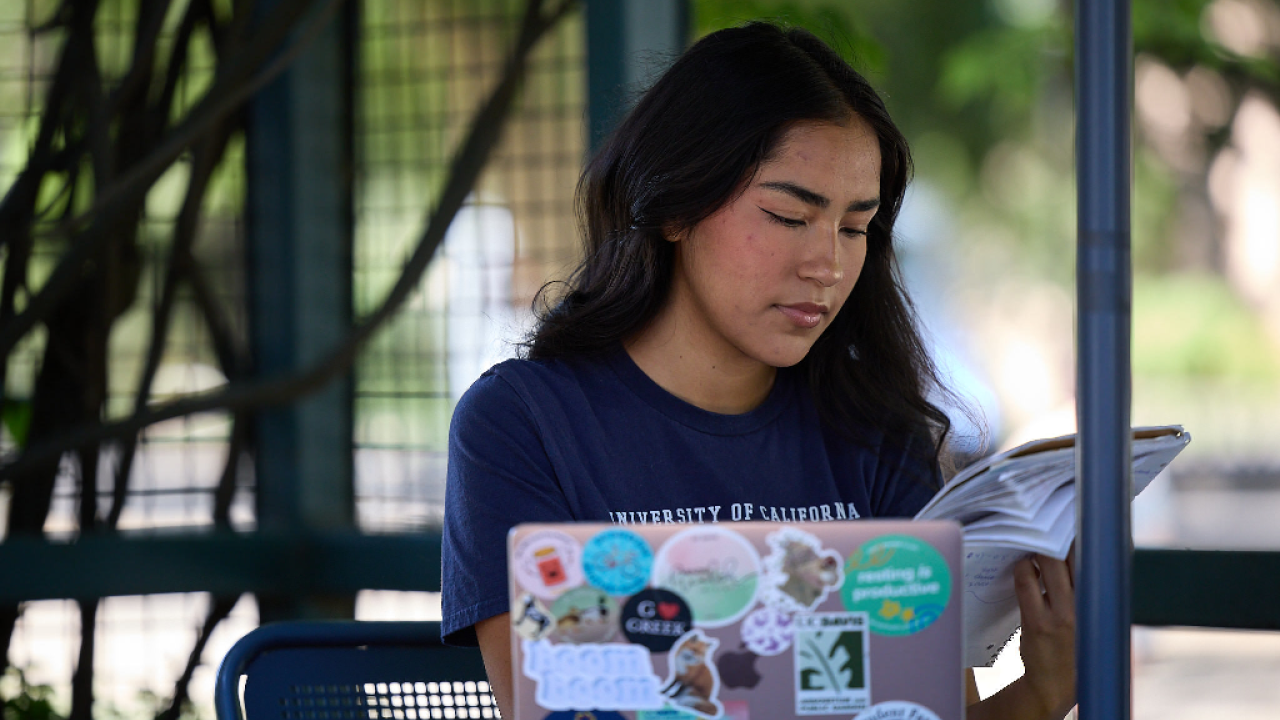
Summer Sessions access increases through expanded virtual options
Faculty, Continuing and Professional Education partner to develop high-impact courses
UC Davis 2024 Summer Sessions opened June 24 with more flexibility for students than ever — including a record 44 online courses. Four virtual General Education courses in psychology and communication also debuted.
Until the 2020 and 2021 pandemic years, when all courses were provided online, UC Davis Summer Sessions courses typically included about a dozen virtual courses out of its 600-plus courses. This year, about 7% of the over-700 course offerings are available in a virtual format. The expanded offerings already show promise with a fill rate of 92% for virtual courses versus a 69% fill rate for in-person courses.
The four new virtual courses — General Psychology, Developmental Psychology, Interpersonal Communication, and Child Adolescent and Media — are the result of a pilot project initiated by Matt Traxler, associate vice provost for student success in Undergraduate Education, and led by Omega Lee, Summer Sessions executive director.
“Chiefly, we did this to provide undergraduates with greater and more equitable access to coursework in the summer. Students, especially lower-income students, face major challenges to participating in Summer Sessions,” Traxler said. “Students expressed much greater interest in virtual coursework in the post-pandemic period. Providing more high-quality remote learning opportunities helps us reach more students who couldn’t previously reconcile competing needs to be home, work and perform family responsibilities along with their desire to further their educations.”
The new courses were developed by faculty who sought to create and teach high-quality virtual courses that were of greatest student demand in summer, as well as during the academic year, and that promote equitable outcomes.
“These are courses that can be difficult to enroll in,” Lee said. “They may also have smaller class sizes in the summer, reducing waitlists and providing students a better chance at securing a spot.”
As Summer Sessions leaders assess the value and success of the four courses, 25 additional courses are in development for future Summer Sessions. Next steps, Traxler said, include continuing support for faculty as they move the proposed new courses from the approval process through the course development and delivery processes. He credited UC Davis Continuing and Professional Education, or CPE, for its partnership with faculty to transform the courses into a virtual format.
“CPE has a long history of developing and delivering high-quality remote courses. Thus, they are ideally suited to supporting our faculty,” Traxler said. “It is gratifying for me to see the individual attention that CPE devoted to our instructors as they work through the process of building new syllabi for remote courses, new instructional materials and new ways of assessing student work remotely.”
CPE Dean Julie Greenwood said her team provided support throughout the development of the virtual courses, once approved.
“For many students, in-person Summer Sessions just aren’t an option,” said Julie Greenwood, dean of UC Davis Continuing and Professional Education. “Online changes that. Our partnership with the Office of Undergraduate Education helps ensure that all students have the access and opportunity to set themselves up for success at UC Davis.”
Still, the increased flexibility doesn’t solve all the problems some students face.
“We still have to worry about access to technology, access to high-speed internet, suitability of home-learning environments and more,” Traxler said. “We continue to worry about the technical aspects of virtual courses and seek solutions. We will continue to consult with our campus experts and the instructors to track issues as they arise and develop means to overcome those challenges.”
Summer Session I opened June 24 and ends Aug. 2. Summer Session II begins Aug. 5. Registration for Summer Session II is open through July 15. Late fees apply for registration July 21-Aug. 9.
